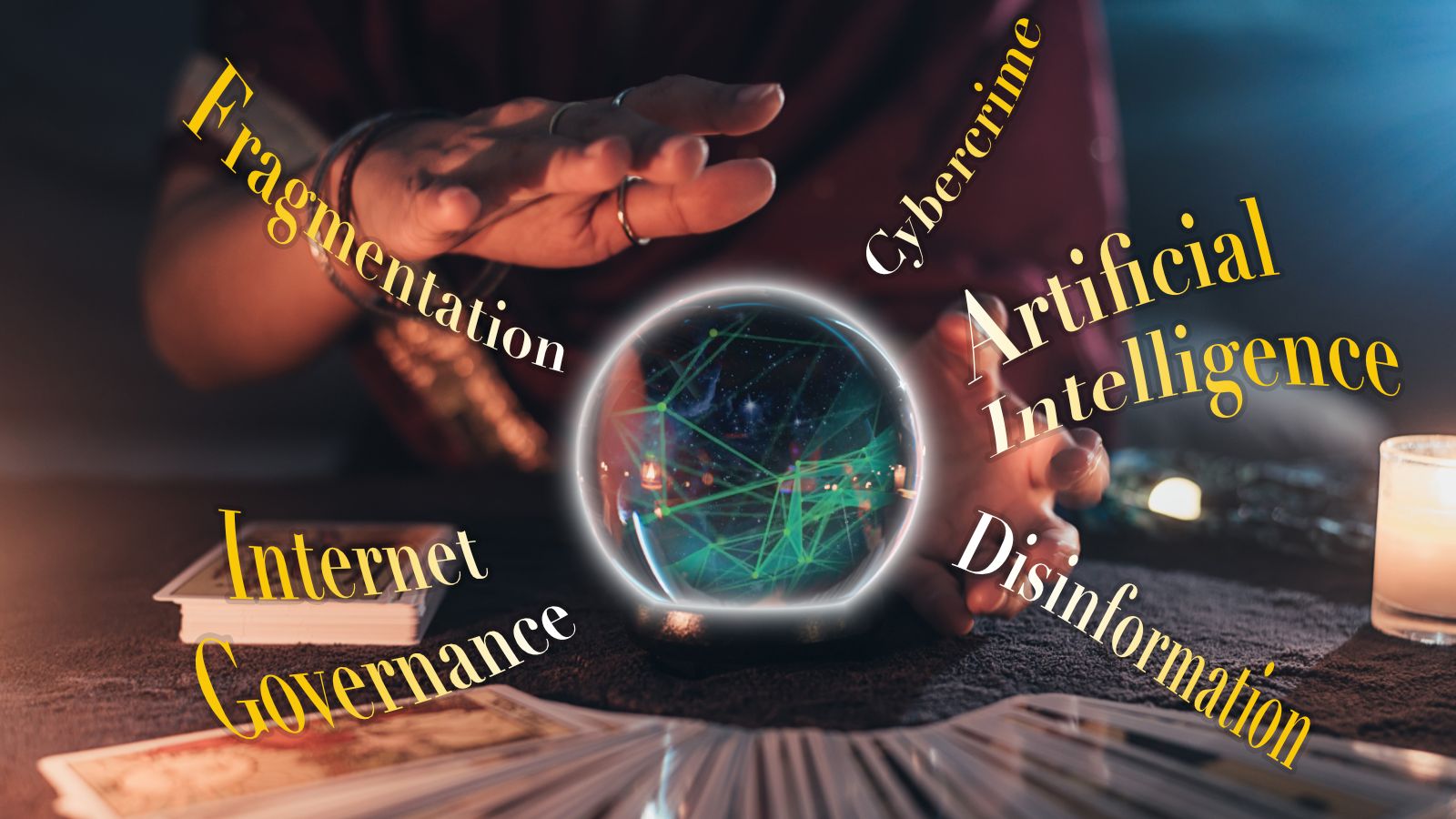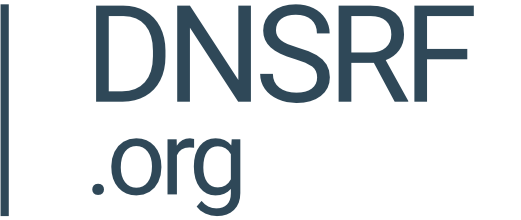A bigger, better? and messier internet. Oh, and AI on everything.

By Kieren McCarthy
That’s right, it’s the unquestionably accurate DNSRF 2024 tech predictor.
We are living through a decade of disruption. Social, political and technological norms have been turned upside down, old certainties look like fresh relics, and the future is looking more opaque than it has for generations.
So it’s a Happy New Year! from the DNS Research Federation and to celebrate the world’s entry into 2024, we have wracked our holiday-addled brains to present predictions for what the next year will bring. With an excessive focus on the internet of course.
Prediction One: Internet governance will become interesting again!
And by interesting, we mean worrying. It’s been nearly 20 years since a World Summit on the “Information Society” put a spotlight on the way that the internet is organised.
It quickly became clear that the world’s governments had very different ideas about how this global network of networks should be run and began an intensive - and occasionally alarming - discussion over what should be done in response.
The United Nations has announced an official 20-year review (WSIS+20) and over the next two years the question over how the internet is developed and by whom is again on the table.
You don’t need us to tell you that the internet of 2005 bears little resemblance to the one we experience today; nor that there are some significant problems, not least in DNS abuse and an explosion in problematic content, from child sexual abuse materials to disinformation to ubiquitous online scams. It’s clear there needs to be some kind of systemic change but how - and who will ultimately decide what those changes are?
Add growing geopolitical tensions, a slew of critical elections across the globe and the fact that the UN Secretary General’s office has already made a pitch for more access to the levers of power with its Global Digital Compact (GDC) agenda, including a “Summit of the Future” to precede WSIS+20 in September this year, and you have a very uncertain environment.
Internet governance is about to get very interesting.
But wait. What all the annual prediction pieces get wrong is a sense that the outcomes are somehow inevitable and beyond influence.
Here at the DNS Research Federation we believe in a quote that the internet improbably attributes to both Abraham Lincoln and US management consultant Peter Drucker, who was born 40 years after Lincoln’s death: “The best way to predict the future is to create it.”
In 2024, we will be continuing our work on how to increase trust and reduce abuse in the DNS and will launch a new service that we hope will cause a sea-change in how it is tackled and measured.
We’re also closely tracking the UN’s GDC process with our policy team providing regular analyses and updates to the internet industry. We are in the middle of a research project looking at the impact of one of the key internet governance institutions, and we are in regular discussion with the broader internet community about what improvements can be made to how things are run.
More on all those programmes as the year progresses.
Prediction Two: A fragmenting internet
Every year for the past decade, the internet community has warned that we face a fragmenting internet, frequently suggesting a change in behaviour or policy to stave it off.
In 2024, the sobering reality is that the threat of fragmentation continues apace while the policy options have grown smaller. The internet has proven to be extraordinarily resilient and elastic but there’s no escaping the fact that it relies on standards and protocols to act as connective tissue.
Through our work at the Internet Standards Observatory, we can see that technical standards bodies continue to see and discuss proposals based on 'New IP' themes put forward by China and its proponents.
Those themes can prove appealing to organisations looking to solve complex problems that the internet continues to throw out. But in each instance they also rely on a degree of control that threatens to undercut the way the internet functions and put at risk the openness and interoperability that has made it such an extraordinary tool for commerce and creativity.
The further down the line those proposals go, the more likely a fragmented internet becomes as different companies, countries and regions start using different approaches that will inevitably conflict at some point in future.
Meanwhile, at the free market end of the internet, fragmentation is also happening through the rapid expansion of alternative naming systems that are not interoperable with the domain name system. Blockchain domains.
This is a topic we at DNSRF have become increasingly interested in, not least because they not only look more likely to succeed than previous efforts to create “alternate roots” but also come with some potentially significant benefits, including lower cost, greater control and - in terms of data accuracy - greater security.
But, of course, stepping outside the current DNS governance structure also brings its own risks of fragmentation, including name collisions that could undermine security and trust in the larger system.
We will be tracking this issue in 2024 but in the meantime, we have a recent paper and an open access, special issue of the Chatham House Journal of Cyber Policy which will be published soon. (We’ll add a link when it’s out.)
Prediction Three: A merging internet
Both fragmenting and merging at the same time? Yes, that’s the internet.
While the underlying structure of the network looks more set for a split than ever, the businesses living on top are growing bigger and fewer by the day: the registrar and registry markets are likely to continue on their path to greater market consolidation in 2024.
There are precious few economists looking at the DNS market despite several high profile cases in recent years - including the aborted sale of the .org registry and acquisition sprees involving public companies including Google and GoDaddy.
The lack of interest outside the industry suggests that things will continue along the same path and so we can expect 2024 to see more acquisition and consolidation with knock-on benefits for the big beasts through economies of scale.
There are already signs that an increasingly oligopolistic market featuring fewer companies with less competition is leading to some unfair pricing decisions but we’re not ready to predict regulatory intervention just yet, despite an increasingly interventionalist Federal Trade Commission (FTC) in the United States, additional teeth given to the UK’s Ofcom, and the European Union’s current legislative crusade.
Prediction Four: A fragmented uniform internet
Speaking of legislation, 2024 will be the year that Western governments finally try to grapple with the many problems that the internet has created over the past decade.
The UK recently passed the Online Safety Act which it hopes will lead to a safer and more content-controlled online existence, although the majority of that work will now fall to regulator Ofcom which has the unenviable (read: impossible) task of drawing up new rules to pressure internet companies to clean up things online without burdening them with excessive requirements.
That’s not all. The UK government has decided to fully implement the Digital Economy Act from 2010 - something that will impact UK-based registries - and there is a new Criminal Justice Bill that will be pushed through Parliament before the general election. That will likely impact anyone dealing with content through a variety of new offences in the Bill, including criminalising the taking of intimate images and encouraging self-harm. The Bill will also extend law enforcement’s ability to suspend domain names and IP addresses used for fraud.
Meanwhile, Europe’s NIS2 (Network and Information Systems Directive 2022) will move from approval to implementation this year and could have far-reaching impacts, particularly around the need for registrars and registries to verify the identities of those who register domain names - and supply them when requested by an authorised party. It remains to be seen how the EU member states will choose to implement the new law and if they do so uniformly. We will be monitoring closely.
In the United States, tensions between tech giants and regulators, as well as between tech giants and media giants, are likely to come to a head in 2024. The FTC sued and/or investigated Google, Facebook, Apple, Microsoft and Amazon last year accusing them of abusing their market positions. Those cases will play out and likely be resolved one way or another this year, with global implications.
Meanwhile, the New York Times is suing OpenAI and Microsoft for “copying and using millions” of its articles to train up its AI bots and then entering into “direct competition” with it. Any decision could have huge implications.
In short, there are a lot of compulsory changes coming down the line which will fragment the way the internet is currently run and experienced while at the same time creating a more uniform and standard way of doing things, largely through imposed law.
Prediction Five: AI affecting everything
And finally, the wildcard for 2024 and beyond: artificial intelligence.
While there are serious efforts afoot to govern and legislate for the impact of AI, its use is already outpacing current structures and this is likely to be a year where we all end up as lab rats.
The most public impact is likely to be in elections in India, the UK and United States where widespread use of AI is both expected and dreaded. There are already examples of national leaders’ appearing in videos saying entirely fictional things in wholly persuasive ways; worse is to come.
AI is also expected to be used increasingly by criminals to pull off scams - the ability for the technology to provide plausible scenarios at enormous scale, combined with the inability of law enforcement to effectively tackle it is a real danger.
But, of course, all technology brings with it good and bad things. AI also provides enormous possibilities including helping to identify online abuse faster; at internet speed.
In a recent research project, we at DNSRF used AI for the first time to sift through thousands of documents and millions of words to pull out interesting patterns. The results were impressive: analysis that would have days took just a few hours instead.
As Mahatma Gandhi said - and we’re confident this one is true - “The future depends on what you do today.” So we will keep working on making the predictions we value come true, and those we dread increasingly unlikely.


